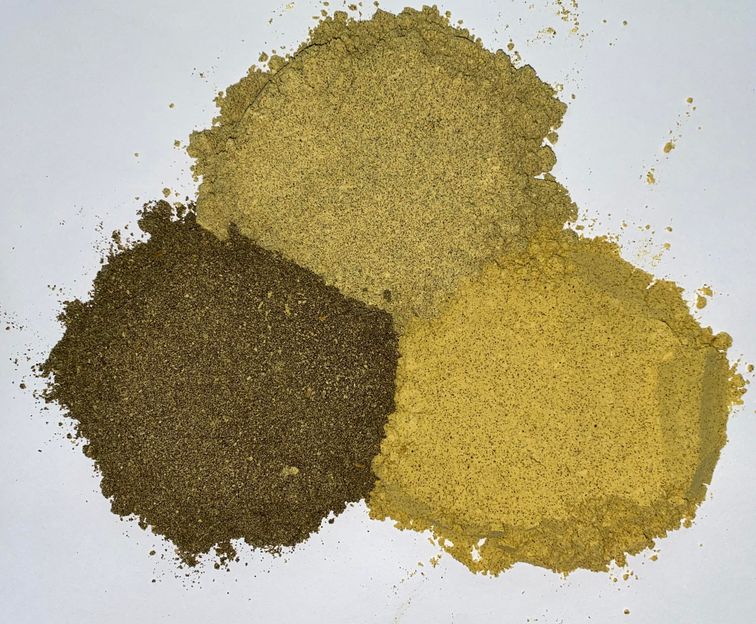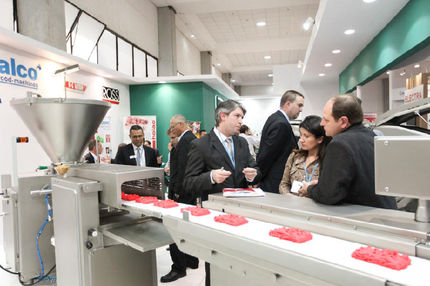Electrostatic separation technology enables protein enrichment of oilseed meals
Sustainable byproducts from agriculture
The world's population is growing - at the same time, resources are becoming scarcer and climate change is advancing. How can a growing population still be adequately fed in times of resource scarcity? Scientists at the Technical University of Munich (TUM) are participating in the TRIBOTEC project, which is researching how a novel dry fractionation technique can be used to obtain highly functional proteins from previously underutilized sources.
"The quality and supply of plant proteins is a critical factor for global food security, nutrition and the environment. New technologies for the gentle extraction of protein are therefore essential," emphasizes Petra Först, professor at the Department of Systems Process Engineering at the TUM School of Life Sciences in Freising-Weihenstephan.
Freising scientists are therefore participating in the "TRIBOTEC" project led by the German Institute of Food Technologies (DIL), which is researching protein enrichment and fractionation of agricultural by-products using dry triboelectrostatic separation technology.
Electrostatic separation of ground material
"Electrostatic separation is a novel, environmentally friendly technology. In this process, the ground materials are first electrostatically charged. With the help of air currents, the ground material is swirled and becomes electrostatically charged," explains Dr. Javier Perez Vaquero, a scientist at the TUM Chair of Systems Process Engineering.
These physical forces separate the fine fraction enriched with protein from the coarse fractions enriched with fibers and starch. The fine fraction then has a significantly higher protein content than the initial sample.
The advantages over conventional methods are that the water- and solvent-free process has lower energy consumption and operating costs while retaining the original functionality of the protein. In addition, the method is suitable for a wide range of materials.
Studies with Rapeseed and lupines
In their experiments, Perez Vaquero and his team studied the meal of seeds of plant origin - in this case, canola and lupins. The total protein gain ranged from 5 percent for canola meal to 20 percent for lupin meal.
"Our research has shown that higher masses can be handled than previous studies have found. We can now achieve mass processing of up to several kilograms per hour, which is a tenfold increase. We are thus one step closer to achieving a protein value high enough to be used in industry," explains Dr. Javier Perez Vaquero.
"The research opens up enormous potential for the use of previously underutilized alternative protein sources," praises Prof. Först. By-products that regularly arise in the food industry - for example, sunflower or rapeseed press cake as residues from oil production - can be further processed in the laboratory or in industry with the help of this process if a source of highly functional protein is needed. This is conceivable, for example, for animal and fish feed or as protein for the production of meat substitute products. The process also makes it possible to develop new vegetable protein sources.

Rapeseed products obtained from the triboelectric belt separation process.
Luise Wockenfuss
Note: This article has been translated using a computer system without human intervention. LUMITOS offers these automatic translations to present a wider range of current news. Since this article has been translated with automatic translation, it is possible that it contains errors in vocabulary, syntax or grammar. The original article in German can be found here.
Most read news
Topics
Organizations
Other news from the department science

Get the food & beverage industry in your inbox
By submitting this form you agree that LUMITOS AG will send you the newsletter(s) selected above by email. Your data will not be passed on to third parties. Your data will be stored and processed in accordance with our data protection regulations. LUMITOS may contact you by email for the purpose of advertising or market and opinion surveys. You can revoke your consent at any time without giving reasons to LUMITOS AG, Ernst-Augustin-Str. 2, 12489 Berlin, Germany or by e-mail at revoke@lumitos.com with effect for the future. In addition, each email contains a link to unsubscribe from the corresponding newsletter.
























































